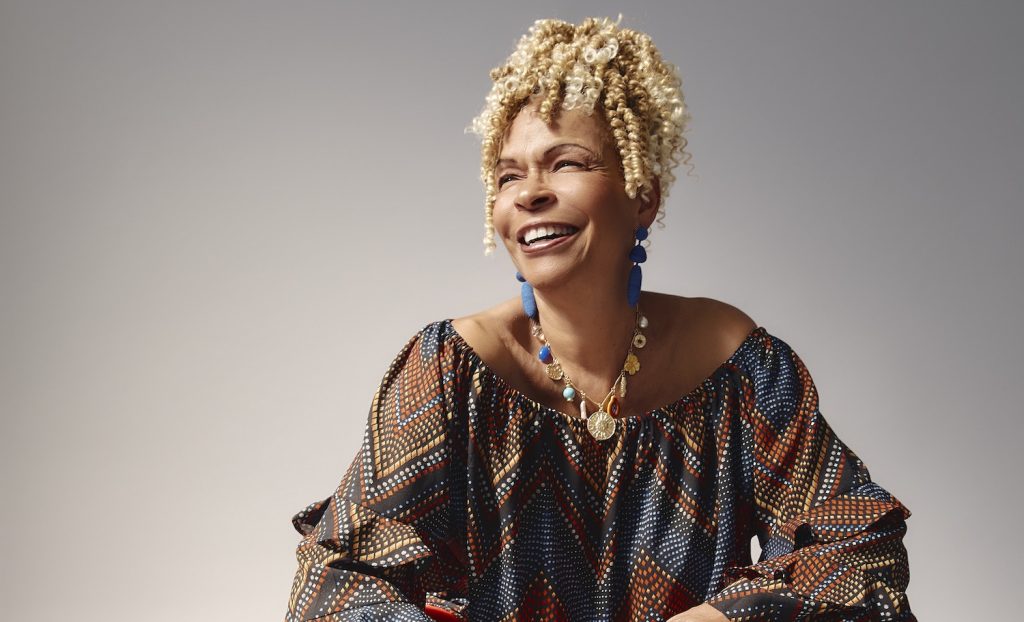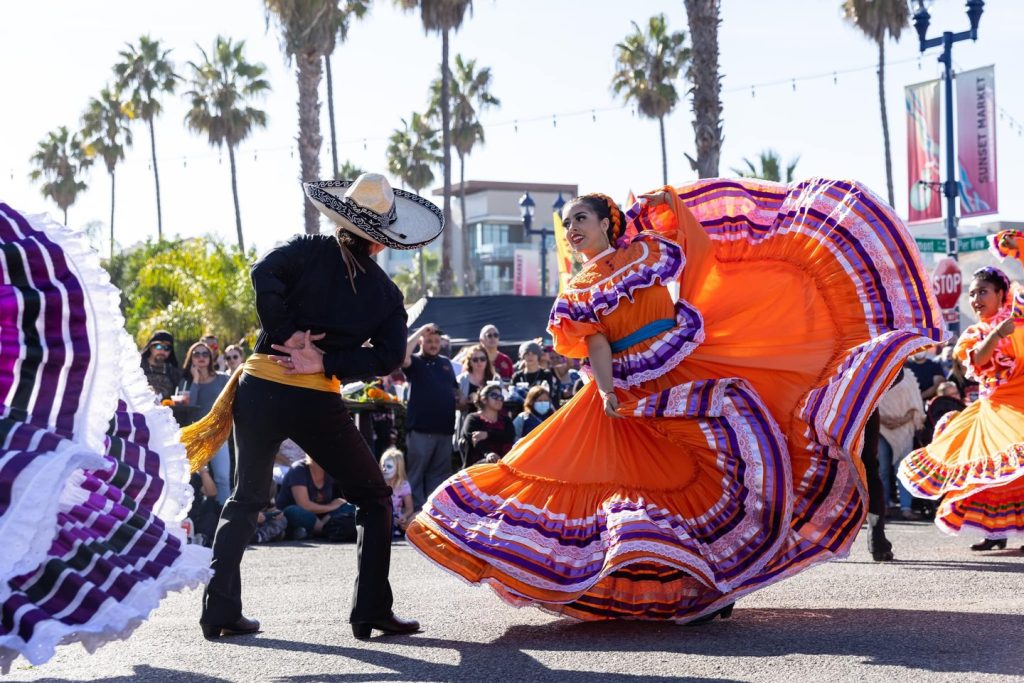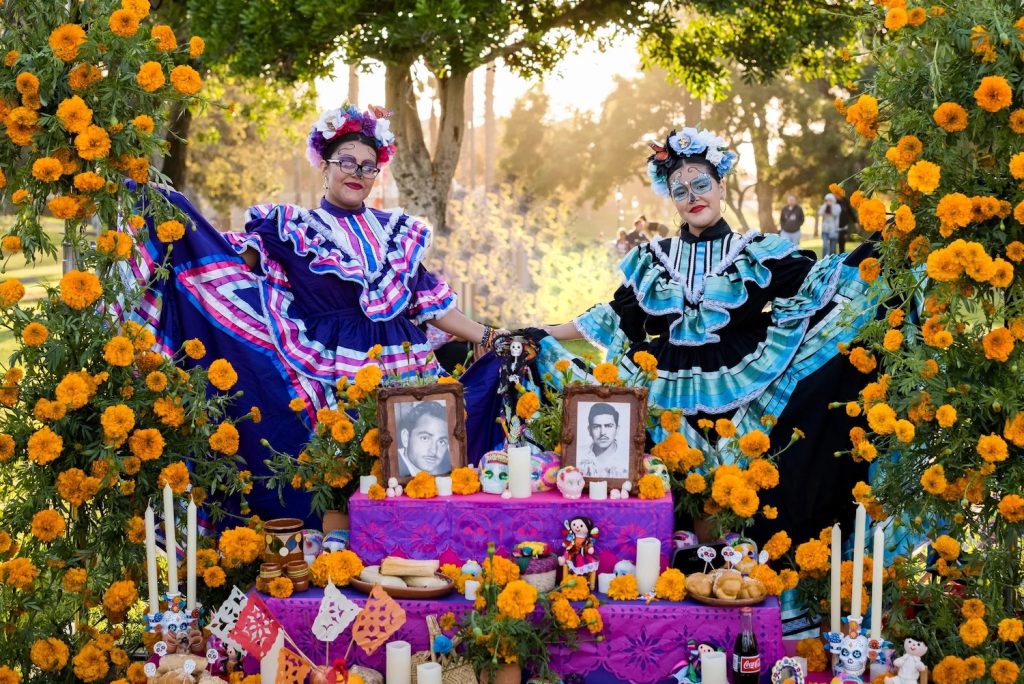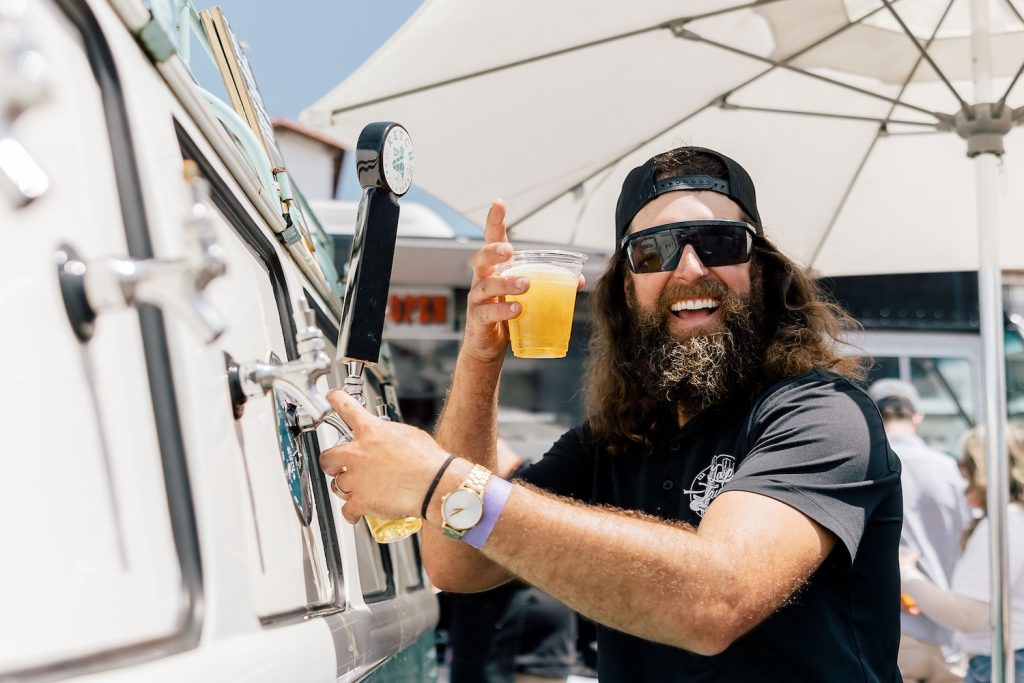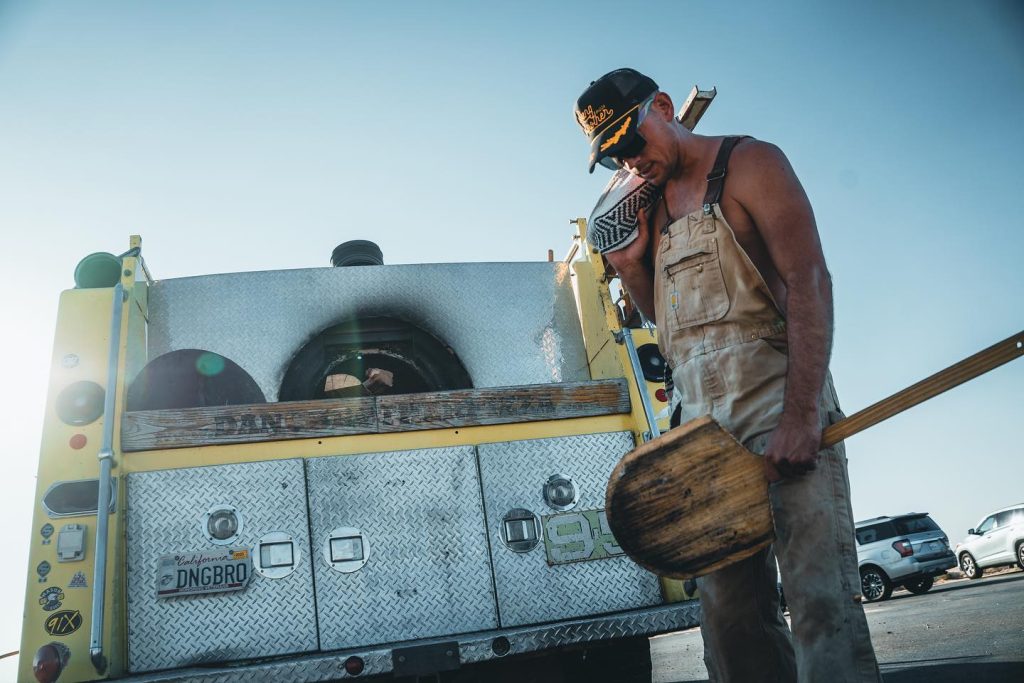Alex Morgan took a deep breath.
When her shoulders relaxed, she charged toward the penalty spot and swung her famous left foot through the ball. It seemed destined for the back of the net, an equalizer for the Wave and another of Morgan’s 200-plus goals for club and country. But then, like a beach volleyball player in full stretch, North Carolina Courage goalkeeper Casey Murphy dove and threw out her right hand, deflecting the ball harmlessly over the crossbar. Three minutes later, Morgan was subbed off, her retirement starting on a hot September night at Snapdragon Stadium.
The soccer world focused on what had ended—a legendary playing career that inspired millions around the globe. But in the weeks since Morgan’s final game, one big question lingers for the Wave: What does the future hold for the team that she left?
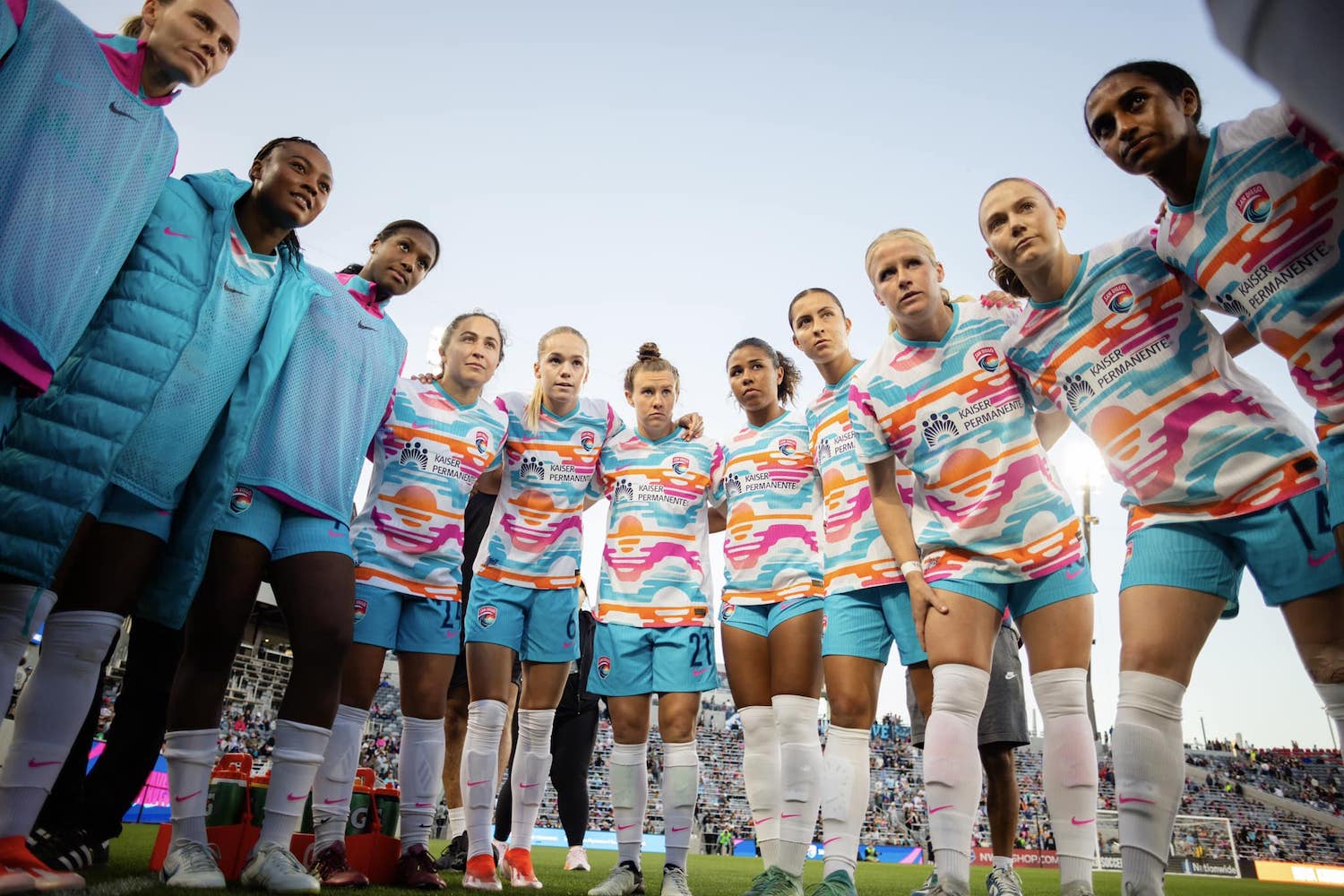
The Wave signed Morgan, a two-time World Cup champion, ahead of the team’s inaugural 2022 season. Their first home game at Snapdragon Stadium attracted a sold-out crowd of 32,000, at the time an NWSL record. That excitement, and Morgan’s league-leading 15 goals, carried the Wave to the NWSL semifinals.
The Wave did one better the next season, winning the NWSL Shield, an award given to the best team during the regular season. Fans reciprocated, providing the Wave with the highest average attendance in the league. Morgan again ranked among the leaders in goals, assists, and total scoring attempts, and the team made the semifinals once more.
The Wave were like a newly licensed teenager test-driving a Porsche. Blowing by more established opponents, the club ignored its inexperience and relished the playing power at its disposal. The players felt that they belonged in their new league. “We deserve to be here. We earned the right to play here, but we deserve more,” star goalkeeper Kailen Sheridan roared to her teammates moments before last year’s NWSL semifinal against the OL Reign.
This season, Wave fans hoped the third time was the charm, the year the team put it all together to do something that no local team has done since 1963—win a major sports championship. At the Wave’s home opener in March 2024, the team broke the single-game attendance record they set in 2022.
But in many ways, Morgan’s final shot of her career is the perfect encapsulation of the Wave’s 2024 season so far. It was a shot that could have and should have gone in. In the past, it would have. This has been a season of change, not progress.
In March, Ron Burkle, the Wave’s founding owner, sold the team to Los Angeles–based investors Lauren Lichtman and Arthur Levine. Over the summer, amid a seven-game winless streak, Wave president Jill Ellis fired head coach Casey Stoney. Then, the club was rocked by accusations of workplace misconduct by a former employee. (The Wave denied the allegations.) Four franchise stalwarts—forward Sofia Jakobssen; defenders Abby Dahlkemper and Sierra Enge; and, of course, Alex Morgan—left for various reasons.
On the pitch, the Wave’s performance suffered. With just four wins, they are out of a playoff spot by six points with six league games left to play. They’ve netted the third-fewest goals in the NWSL so far this year, with 17—just two more than Morgan scored by herself in 2022. According to The Athletic, the Wave ranked second-to-last in direct speed at the time of Stoney’s dismissal, despite ranking second in possession rate. In other words, their offense, once daring and opportunistic, had become a slog.
But all is not lost, not this year and not in the future.
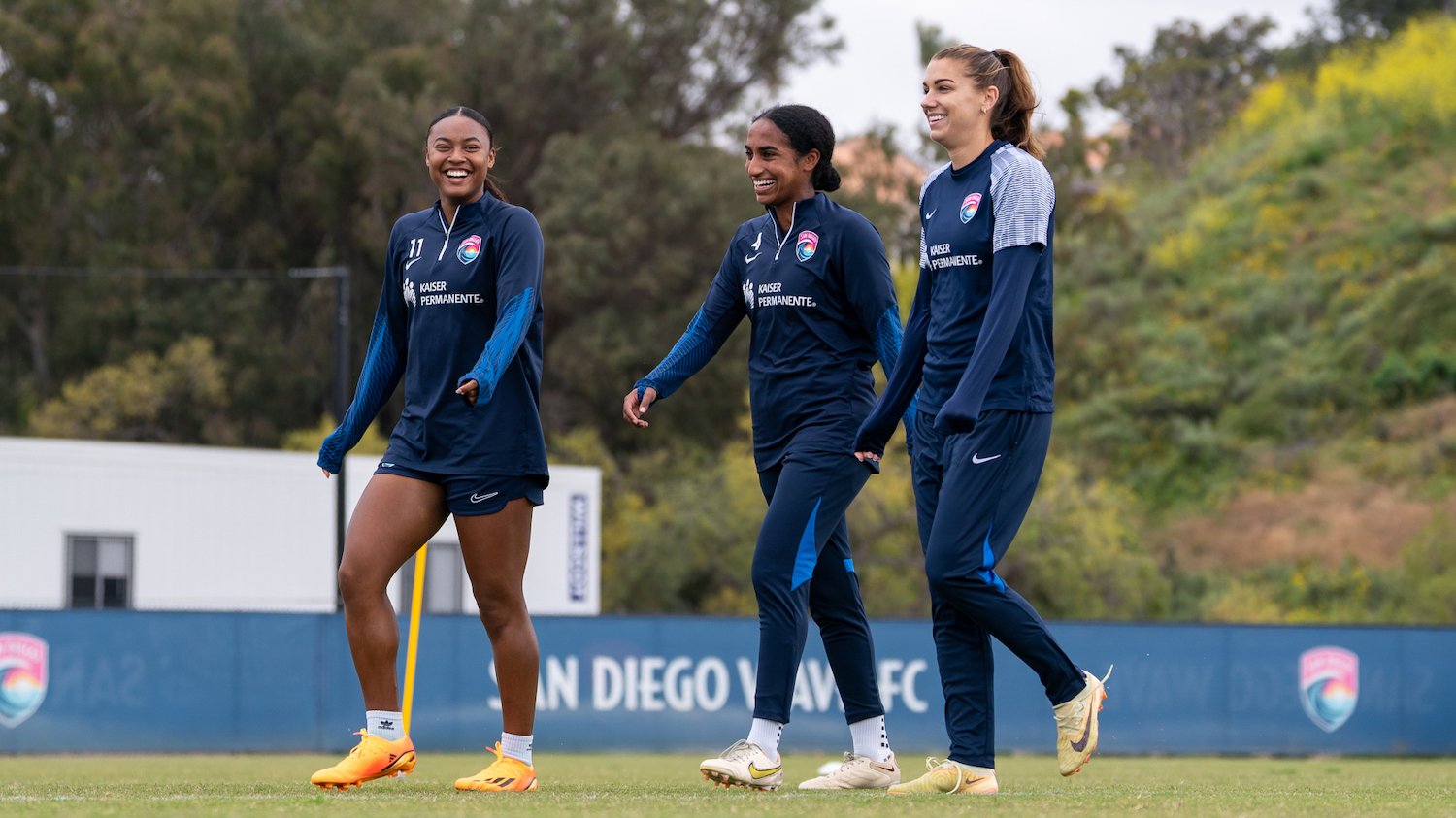
Few club teams have as much high-end talent as the Wave. The versatile 19-year-old Jaedyn Shaw is poised to claim the mantle from Morgan and become a goal-scoring star for both the Wave and the US Women’s National Team. (Shaw was a reserve on the Olympic gold medal–winning squad this summer in Paris.) Fellow forward Maria Sanchez is finding her footing after being acquired from the Houston Dash in April. On Wednesday, Sanchez scored a hat trick in the Wave’s 3-2 win over the Portland Thorns in a Concacaf W Champions Cup game.
And there is arguably no better defensive duo in the world than Sheridan, the starting keeper for the Canadian national team, and defender Naomi Girma. “She’s the best defender I’ve ever seen,” USWNT coach Emma Hayes said after the team’s victory over Germany in the Olympic semifinals. In one sequence against the Courage, in Morgan’s final game, Girma baited an attacking player into cutting in, then effortlessly plucked the ball, single-handedly ending the threat.
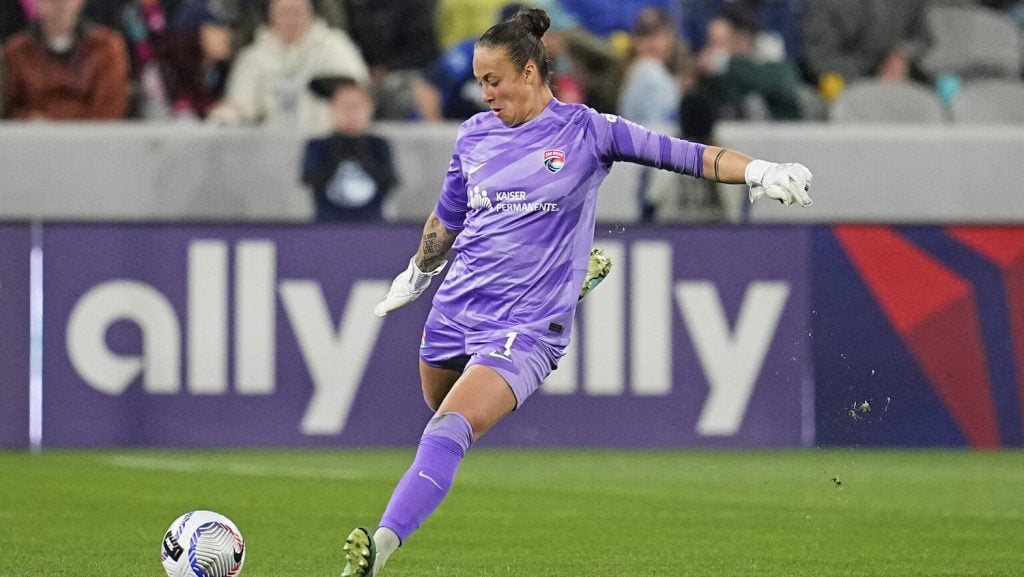
That reliability in the back creates possibility up forward. The nucleus of the next great Wave team is there. It just needs the right structure and supporting pieces, especially in the midfield. Landon Donovan, the interim head coach and a soccer legend in his own right, is trying to bring that to fruition with a more pressing style of play.
A commitment to excellence starts at the top, though, and it appears the new owners understand that. “This investment aligns with our values and vision for supporting initiatives that empower women and foster opportunities for aspiring female athletes,” Lauren Leichtman said in a statement when the sale was announced.
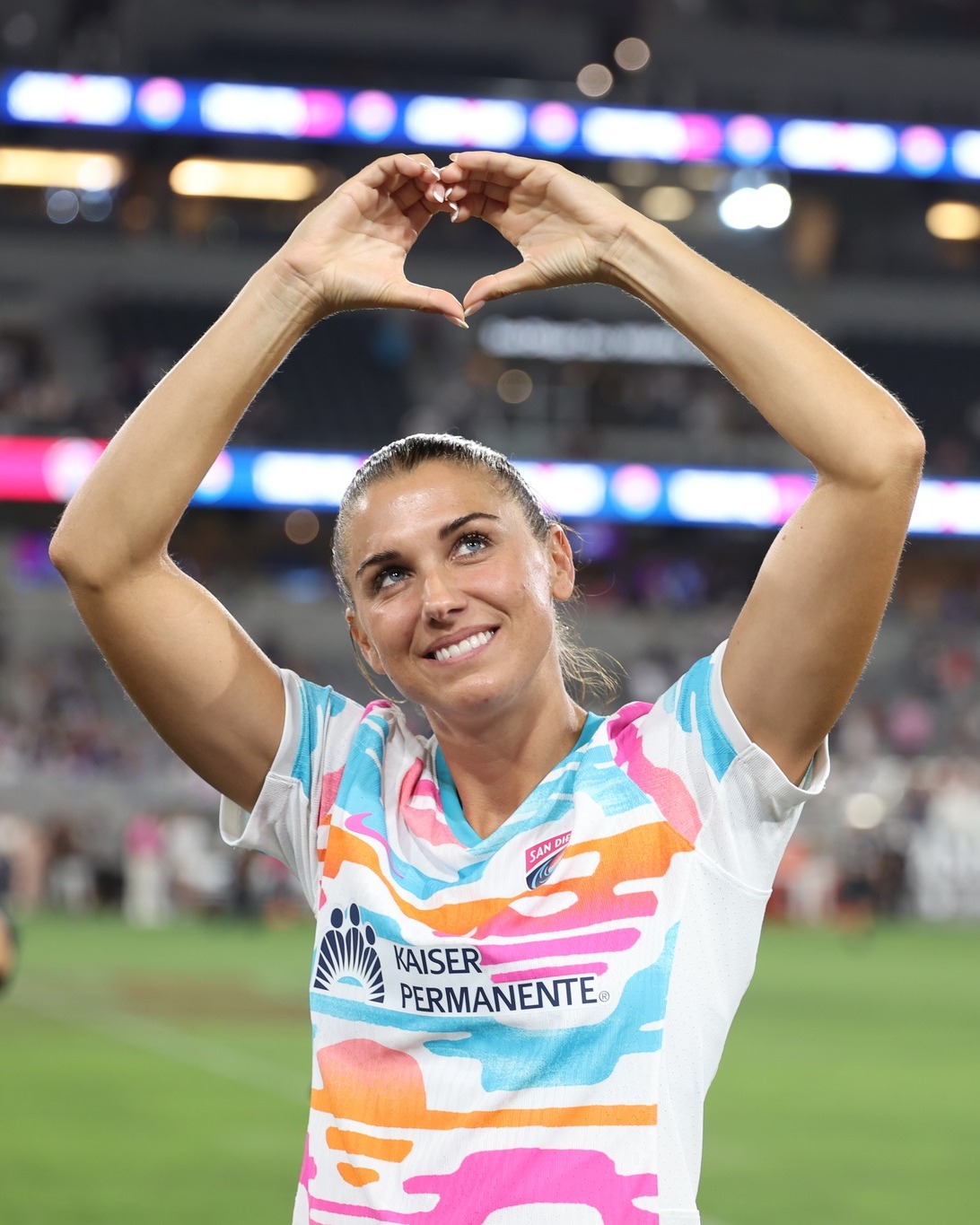
If Burkle’s Wave—Wave 1.0—were a startup fueled by successes that came fast and easy, then Wave 2.0 should see the club solidify its foundation and mature into a more sustainable operation. The Padres are an illustrative example. After the late Peter Seidler took control of the team in 2020, he made unprecedented investments in the roster and player development and empowered AJ Preller, the team’s general manager, to do what it takes to win. The Pads are now a perennial playoff contender and the hottest ticket in town.
Morgan’s departure is certainly the end of an era for the Wave, but she inspired a vision for soccer in San Diego that did not exist before her arrival. In that vision, the Wave collect trophies for fun, and the players raise those trophies in front of one of the most fervent fan bases in the sport. That hope, that possibility, isn’t going anywhere.



